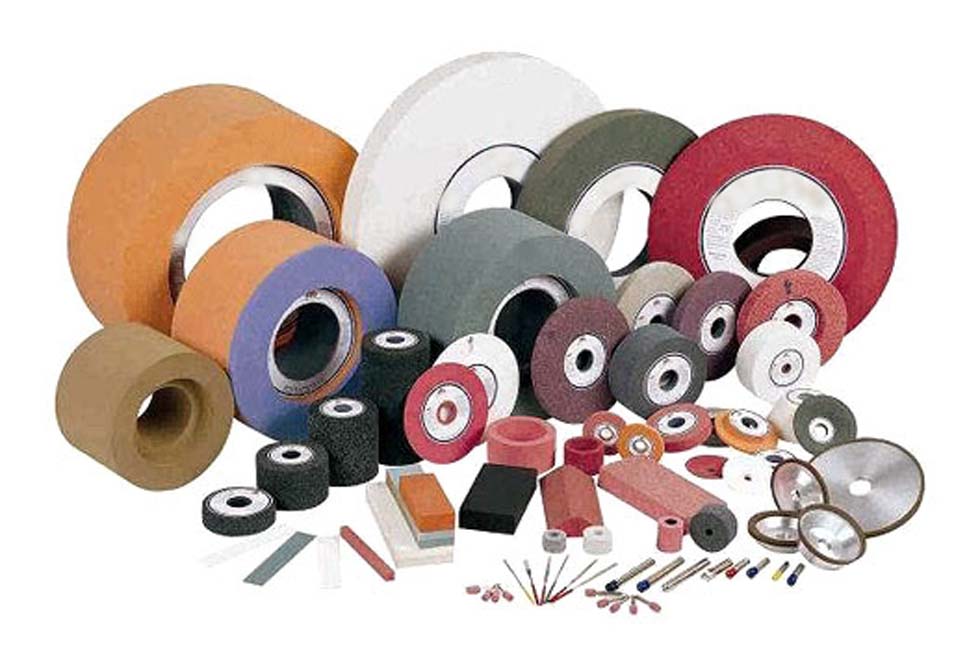Home / News & Blog / Abrasive Blog / In Depth Guide: Types of Abrasives Used in Grinding Wheels for Manufacturing

Grinding wheels are indispensable in a wide range of manufacturing processes, from precision machining to general material removal. These tools rely on abrasives to wear away material, shape objects, and smooth surfaces. Different abrasives offer varying levels of hardness, durability, and cutting ability, depending on the material being worked on and the specific needs of the manufacturer. So, what types of abrasives are commonly used in grinding wheels, and how do they affect the process? Let’s break it down!
Brown fused alumina is one of the most widely used abrasives in the manufacturing industry. This tough and durable material is produced by fusing bauxite at high temperatures in an electric arc furnace. It is most commonly used for grinding steel, ferrous metals, and other hard materials.
Key Benefits: High durability and resistance to wear; Cost-effective option for general-purpose grinding; Great for rough grinding and surface preparation
Applications: Grinding wheels for heavy-duty tasks; Cutting and shaping metal; Used in bonded abrasives for tougher applications
If you’re working with hard steels or other abrasive-resistant metals, brown fused alumina is typically your best option for general-purpose grinding.
White fused alumina is made from high-purity alumina and is produced in a similar process to brown fused alumina but with higher purity. This gives it a white, clean appearance and a more consistent crystalline structure. It’s an excellent choice for precision grinding and finishing applications.
Key Benefits: Superior hardness and sharpness; Highly effective in precision grinding; Less likely to cause damage to delicate workpieces due to reduced heat generation
Applications: High-precision grinding of hard metals; Used in polishing and finishing applications
Suitable for working with non-ferrous metals like aluminum and brass
White fused alumina is commonly used for grinding delicate materials like carbide tools and non-ferrous metals, where high precision is a must.
Silicon carbide is one of the hardest synthetic abrasives available and is widely used for fine grinding and polishing applications. Known for its sharpness and extreme hardness, SiC excels in tasks that require a precise, fine finish. It’s particularly effective on brittle and hard materials like ceramics, glass, and carbide.
Key Benefits: Extremely hard and sharp grains; Best suited for grinding non-ferrous and brittle materials; Excellent for fine surface finishing
Applications: Grinding glass, ceramics, and composites; Used in finishing tasks for extremely smooth surfaces; Ideal for applications requiring low thermal impact, such as fragile materials
For industries that deal with high-precision grinding (like electronics and automotive), SiC’s fine grinding ability is essential for achieving the required surface quality.
Pink fused alumina is another variation of alumina, produced with added trace elements that improve its sharpness and cutting ability. It has a higher level of purity than brown fused alumina, making it ideal for more precise grinding applications. Its strength makes it particularly effective for grinding harder metals or materials that need to maintain a high level of precision.
Key Benefits: Excellent cutting performance and sharpness; Higher purity compared to brown fused alumina; Perfect for high-precision grinding and finishing applications
Applications: Grinding high-hardness materials; Surface preparation for coating and finishing; Used in grinding wheels for tool sharpening
Pink fused alumina is often used in tool grinding and cutting tools, where precision is key, and cutting efficiency needs to be maintained over time.
Zirconia alumina is a high-performance abrasive designed for tougher grinding operations. It combines the strength of zirconia with the hardness of alumina, making it ideal for tasks requiring high stock removal. Zirconia alumina is known for its self-sharpening properties, meaning it maintains its cutting power over time, even under heavy loads.
Key Benefits: Excellent for heavy-duty applications; High resistance to wear and thermal shock; Self-sharpening, improving efficiency and extending the life of the abrasive
Applications: Grinding hard metals and alloys; Used in flap discs, grinding wheels, and sanding applications that involve heavy material removal; Great for high-speed, aggressive grinding.
For manufacturing processes where high stock removal is required, such as in metalworking, zirconia alumina abrasives can help boost productivity without compromising surface finish.
Ceramic abrasives are an innovative option for grinding wheels, combining the hardness and toughness of ceramic materials with high-performance cutting. Ceramic grains are specifically designed for high-performance applications where material removal and surface finish need to be optimized, especially in automotive, aerospace, and heavy equipment industries.
Key Benefits: Longer life and higher cutting efficiency; Self-sharpening properties; Perfect for high-tensile strength materials.
Applications: Grinding aerospace parts, turbine blades, and steel; Used in heavy-duty industrial grinding wheels; Ideal for operations requiring high-speed grinding and extended wheel life.
Ceramic abrasives are often the go-to choice for industries that demand both performance and durability, particularly in high-pressure manufacturing environments.
Selecting the right abrasive for your grinding wheel can have a profound impact on the efficiency, quality, and cost-effectiveness of your manufacturing process. Understanding the strengths of each abrasive type—whether it’s the durability of brown fused alumina, the precision of white fused alumina, or the sharpness of silicon carbide—will help you choose the best abrasive for your specific needs.
At DOMILL ABRASIVE TECHNOLOGY, we offer a wide range of high-quality abrasives to suit every manufacturing need. Contact us to learn more about our abrasives or request a sample today!